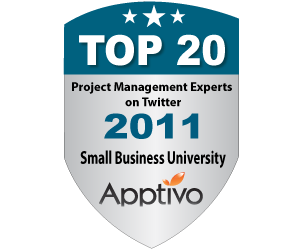I was lucky enough to sit down with Lou Russell, CEO,
Learning Facilitator, Russell Martin & Associates, to talk about
leadership. Today, leadership is a hot topic among the project management
community because a project manager’s role goes far beyond task-related
deliverables. Although the project manager must be able to effectively manage
goals related to time, scope and cost, the work does not stop here since the
project manager must also be able to manage numerous issues and goals, and be
able to lead the people performing them.
Russell is speaking at the upcoming
ProjectWorld & World Congress for Business Analysts
2014 conference in Seattle. He will be presenting a session entitled, “Emotional
Intelligence for Project Team Decision Making.” This year, PW&WCBA combines
professional training alongside real world practicality for richer, more
holistic leadership development. It's no wonder it's become the actionable
playbook for advancing PM and BAs for over a decade.
Check out what Russell had to say:
IIR: How do you,
as a leader, stand out in a crowd in this competitive business world?
Russell: We
challenge people to not give up on project management just because it’s
hard. And to help, we have created a lean version of PM with some radical
ideas which include building a project charter in 45 minutes or less, and
working back from the end date/budget. All of this is done with fun,
fast, flexible and measurable tools and process.
IIR: What are
characteristics of a GREAT leader?
Russell: A GREAT
leader is focused on serving others, not themselves.
IIR: How does a
successful leader communicate?
Russell: A
successful leader always seeks first to understand / listen.
IIR: Can you name
a person who has had a tremendous impact on you as a leader? Maybe someone who
has been a mentor to you? Why and how did this person impact your life?
Russell: There
are many, and Mike Donahue is my personal coach, and has been for many
years. His advice/voice is always in my head.
IIR: What are the
most important decisions you make as a leader of your organization or team?
Russell: How to
improve the performance of our customers in a measurable way, and how to help
my team grow past what they believe their limits are.
IIR: As an
organization gets larger there can be a tendency for the “institution” to dampen
the “inspiration.” How do you keep this from happening?
Russell: Lots of
laughing.
IIR: How do you
encourage creative thinking within your team or organization?
Russell: Everyone
on my team has full ownership of everything they do, and can change it in any
way to make us all better. They know that and do that. Failure is
fine – that’s how people learn. Failure twice is a blind spot and needs
mitigation, which is part of my job.
IIR: Which is
most important to your organization or team? (mission, core values or vision?)
How do you communicate the “core values” to your team?
Russell: Our
current mantra is Scalable and Sustainable. We will only exceed as ONE
with many.
IIR: How do you
help a new employee understand the culture of your organization?
Russell: We share
our Mission, Vision, Values and spend lots of time with them.
IIR: What is one
characteristic that you believe every leader should possess?
Russell: Trust in
providence with a humble heart.
IIR: What is the
biggest challenge facing leaders today?
Russell: The
perception of being busy when we could be wasting our time on the wrong things.
IIR: What is the
one behavior or trait that you have seen derail more leaders’ careers?
Russell: Avoidance
of conflict and accountability
IIR: Can you
explain the impact that social media has made on you as a leader?
Russell: It
connects us to others every minute of the day (good) and provides us with a
huge diversion to not focus (bad).
IIR: What advice
would you give someone going into a leadership position for the first time?
Russell: Be
brave, have a strategy, be ready to change that strategy and be open to growth
throw trips and falls.
IIR: What are you
doing to ensure you continue to grow and develop as a leader?
Russell: I am
part of a CEO group that meets monthly to keep each other on track.
Russell will be speaking at ProjectWorld & World Congress
for Business Analysts 2014, taking place in Seattle, Washington September 22-24th
at the W Hotel. The 2014 program is designed with courses for all training
levels, a robust agenda, and most importantly tangible lessons which you can
begin implementing the day you return to your office, making you even more
valuable to your organization. PW&WCBA offers attendees 36 PDU/CDUs -
that's more than half of the required credits necessary to maintain your
certification in just one place.










